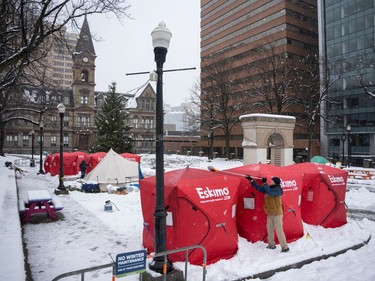https://flo.uri.sh/visualisation/16722366/embed
Article content

If we can’t house the, why bring them? Why bring them to cast Canadian poor and homes people out on the streets. A February 24 major article in the National Post entitled “Tent City Nation” made the following important observation: “
HOW DID WE GET HERE?
It’s believed that more people are sleeping rough in this country than at any point since the Great Depression. How did tent encampments suddenly become a fixture of so many of our towns and cities?
Many things happened at once, among them a pandemic. COVID-19 forced homeless shelters to impose capacity limits to reduce the spread of the infectious disease, which forced many people on the margins into tents and sheds.
Shelters were already under pressure, in part because of a substantial increase in the number of refugees using their services. The number of people seeking asylum in Canada has spiked in recent years. During the first 11 months of 2023, more than 128,000 people filed asylum claims in this country — a record number. It’s more than double the number from all of 2019, the year before the pandemic’s outbreak.
Toronto Mayor Olivia Chow, in a November letter to two federal cabinet ministers, noted that refugees then occupied 3,900 of the city’s 11,000 shelter spaces — a 50 per cent increase in just six months — while another 1,200 refugees were supported outside the shelter system. She asked the government for financial and material aid to help address what she called a “dire” situation.
“Shelters are full but demand for shelter continues to increase,” Chow wrote. “Each night, hundreds are turned away because no beds are available. While we have opened hundreds of additional spaces, including dedicated spaces for newly arrived refugees, we cannot keep pace.”
